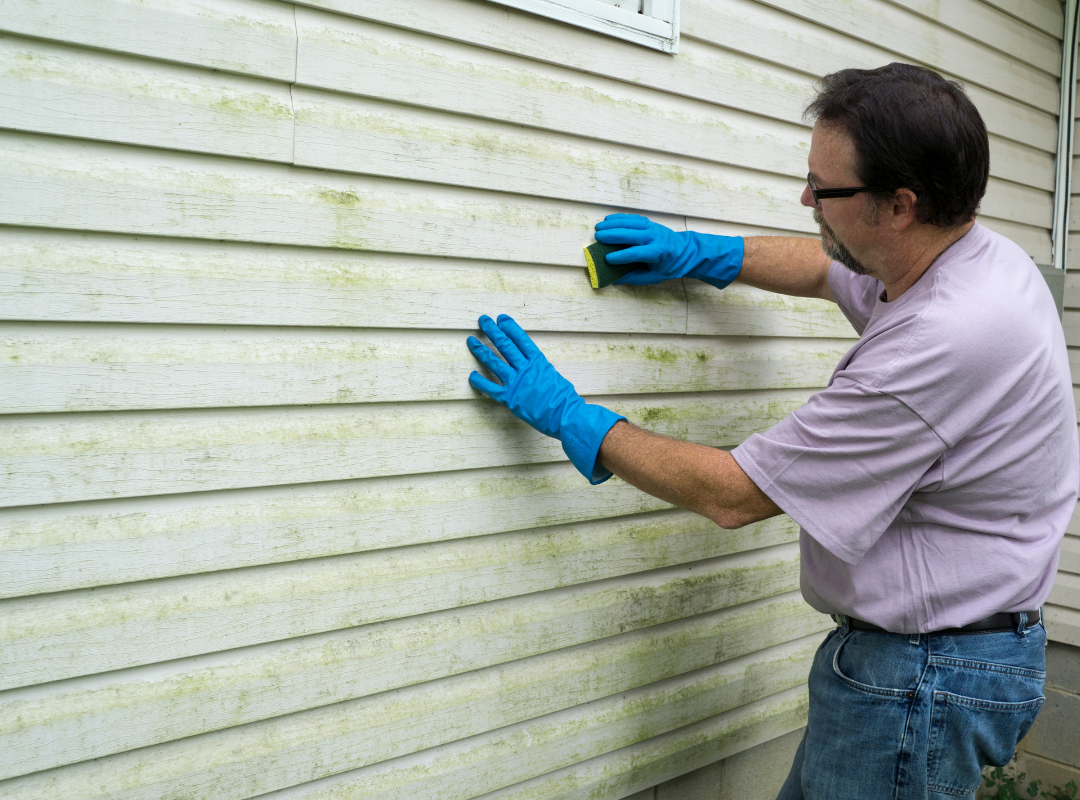Understanding The Risks Of Selling A Home With Mold Damage
When selling a house in Texas, a major concern for homeowners is the presence of mold damage. While it may seem like a minor issue, mold can actually have serious consequences for both seller and buyer.
For sellers, trying to sell a home with mold damage can be difficult finding a potential buyer and if they don’t disclose the issue, it may result in legal repercussions. For potential buyers, purchasing a home with mold damage can lead to health issues or financial issues from removing the mold.
It’s important that both parties understand the risks involved when selling or buying a home with mold damage so they can make informed decisions and ensure a smooth transaction. If you have a house with mold, we can buy it. We have the expertise to buy houses in any situation.
Table of Contents
- The Dangers Of Mold: Assessing The Damage To Your House
- Uncovering The Source: How To Find And Identify Mold In Your Home in Texas
- Taking Action: Fixing And Removing Mold From Your House
- Paper Trail: Documenting The Mold Problem In Your Home
- Selling A House With Mold in Texas: What You Need To Know About As-is Sales
- Adjusting The Price: Lowering For Mold Damage When Selling Your House in Texas
- The Professional Solution: The Process Of Mold Remediation And Cleanup in Texas
- Minimizing Losses: Dealing With Post-closing Discovery Of Mold
- Common Questions When Selling A House With Mold in Texas
The Dangers Of Mold: Assessing The Damage To Your House
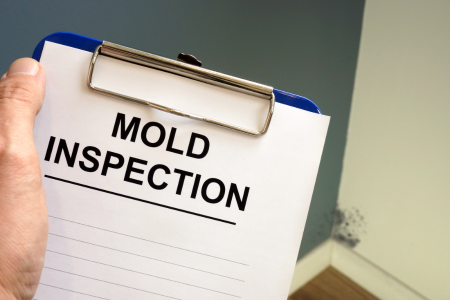
If you’re selling a house in Texas, it’s important to be aware of the potential dangers of mold and how it can affect the value and marketability of your property. Mold is a common issue in real estate, especially in humid climates like Texas.
The presence of mold can cause health risks to inhabitants and also lead to structural damage to the house if left untreated. If you are a seller, it’s important to assess the growth of mold damage in your house before putting it on the market.
We recommend checking for visible signs of mold growth, such as discoloration or musty odors, especially in areas like bathrooms and basements. This includes hiring a professional mold inspector to identify areas where mold could grow. Then, you can take the necessary steps to remediate the problem and continue with the sale process.
Uncovering The Source: How To Find And Identify Mold In Your Home in Texas
Mold is a major concern when selling a house in Texas. Before you address this situation, it’s important to find the source.
This means you’ll need to inspect your home for any signs of mold. Look for dark spots on walls or ceilings, musty odors, or damp areas since these are all common indicators of mold.
You should also check for any water leaks or moisture issues that can promote mold growth. If you think there is mold in your home, it’s important to have it professionally tested and identified so that you can properly address the situation before putting your house on the market.
By taking the time to find and identify the source of mold in your home, you ensure that you can solve the issue properly before you proceed with the sale process.
Taking Action: Fixing And Removing Mold From Your House
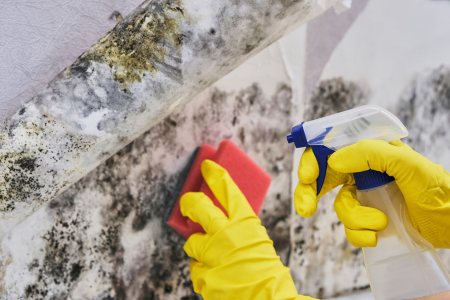
When preparing your house to sell in Texas, dealing with situations like mold is common. Not only can mold be harmful to the health of potential buyers, but it can also significantly decrease the value of your property.
It is important to take care of mold problems before putting your house on the market. This includes fixing any source of moisture that may be causing mold growth and removing any visible mold using the proper techniques and equipment.
It is also important to fix any underlying issues, such as leaks or poor ventilation, to prevent future mold growth. This will ensure that your house is mold-free and ready for potential buyers.
Paper Trail: Documenting The Mold Problem In Your Home
If you’re selling a house with mold in Texas, one crucial aspect to consider is documenting the mold problem in your home. Preparing a paper trail that clearly outlines the presence of mold and repairs can provide potential buyers with transparency and protect you from any legal issues down the line.
The documentation should include previous water damage, mold removal efforts, and professional inspections with test results. It’s important to keep records of this.
Additionally, if there are any health concerns related to the mold, such as respiratory issues or allergies, be sure to document this. By having a thorough paper trail, you can ensure that both you and your potential buyers have a clear understanding of the mold situation in your home.
Selling A House With Mold in Texas: What You Need To Know About As-is Sales
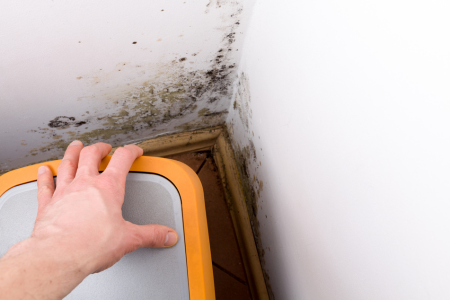
When it comes to selling a house in Texas that has mold, homeowners need to know a few things about as-is sales. First, it’s crucial to disclose any known mold issues to potential buyers.
This is not only about transparency and honesty; it is also about protecting you from legal issues in the future. You should also be prepared to have a lower asking price than similar homes without mold problems.
Buyers may also require additional inspections and remediation before finalizing the sale. Sellers need to understand their legal obligations and be prepared for potential negotiations when selling a house with mold. With us, you can sell your house as-is, even with mold.
Adjusting The Price: Lowering For Mold Damage When Selling Your House in Texas
If you are trying to sell a house in Texas with mold, you may need to lower the asking price. Mold damage can considerably decrease the value of a house, and potential buyers may be hesitant to purchase a property with mold issues.
Before negotiating the price, we recommend having a professional mold inspection done on the house to determine the extent of the damage and the potential costs to fix it. Once you have these quotes, you can confidently negotiate a fair price for your property.
The Professional Solution: The Process Of Mold Remediation And Cleanup in Texas
If you’re trying to get rid of mold in your house, it’s important to understand the process of mold removal and cleanup. Several steps must be followed:
- First, the affected areas must be isolated to prevent further spread of mold.
- Next, specialized equipment and techniques are used to remove the mold and any contaminated material.
- After removal, deep cleaning and disinfecting must be performed to eliminate all remaining mold spores.
- Finally, proper ventilation and other moisture control measures are suggested to prevent future mold growth.
It’s important to hire certified professionals with experience in mold removal to ensure a successful and safe cleanup process.
When we buy your house, you get to forget about all this hassle, as we can take care of the mold issue.
Minimizing Losses: Dealing With Post-closing Discovery Of Mold
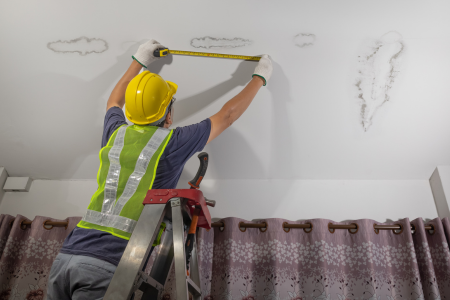
A big concern for both the seller and buyer is the discovery of mold after closing. It can lead to potential losses for all parties since it could significantly decrease the home’s value.
To minimize losses, both parties need to be aware of their rights and responsibilities regarding post-closing mold discovery. Sellers should ensure that all necessary disclosures are made and any visible mold is taken care of before closing and buyers should conduct thorough inspections and be prepared to negotiate if mold is discovered after closing.
It is also important for both parties to have a clear understanding of any warranties or insurance coverage in case of post-closing mold issues. By being proactive and informed, sellers and buyers can minimize their losses when dealing with mold in Texas real estate transactions.
Common Questions When Selling A House With Mold in Texas
Do You Have To Disclose Mold When Selling A House In Texas?
There are certain requirements and responsibilities homeowners must follow when selling a house in Texas. If there is a presence of mold in your house, you have to disclose it. According to Texas real estate laws, sellers have to disclose any known material defects or hazards, like the presence of mold.
Failure to do so can result in legal consequences, such as lawsuits from buyers. Sellers need to know the rules and regulations concerning mold disclosure when selling their property in Texas.
Can A House Be Sold If It Has Mold?
When you are looking to sell your home, you could find mold. While some people may believe that having mold in a house automatically disqualifies it from being sold, the truth is that it is possible to sell a house with mold.
However, there are certain things that you need to know. From understanding the health risks associated with mold to disclosing its presence to potential buyers.
If you want to avoid all the hassles of dealing with mold, you can sell your house to a company like We Buy Houses Fast. We can take care of everything.
Is Mold A Deal Breaker When Buying A House?
When it comes to buying a house in Texas, one major concern for potential homeowners is the presence of mold. While mold can be a deal breaker for some buyers, it’s important to understand the facts before making your decision.
Mold can be found in many homes, especially in humid climates like Texas. However, not all types of mold are harmful and can easily be remediated.
With proper knowledge and precautions, mold does not have to be a deal breaker when buying a house in Texas. We buy houses as is, even with mold issues. If you want to know more about us, contact us.
If you don’t want to go through all the inspections or invest your time and money dealing with mold in your house. Stop putting in more effort to receive hesitant answers! You can sell your Texas house with mold to us. We Buy Houses Fast buys houses with mold all over Texas, including Houston, Dallas, San Antonio, Fort Worth, Austin, and Corpus Christi.
Resources To Help You Sell A Property In Texas
What Do You Have To Lose? Get Started Now…
We buy houses in ANY CONDITION in . There are no commissions or fees and no obligation whatsoever. Start below by giving us a bit of information about your property or call (214) 624-6404…

